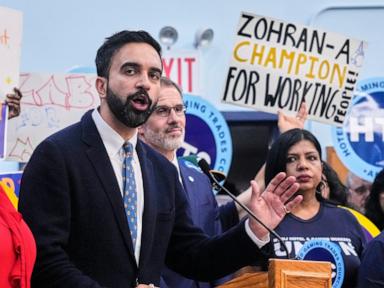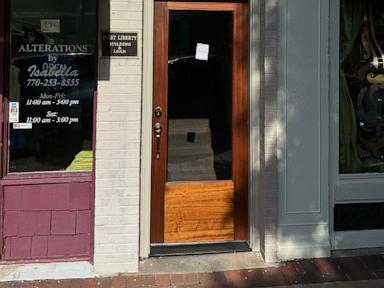Senators are not thrilled with a top White House official's comments that the government funding process should become more partisan, and fear that doing so could erode Congress’ power of the purse.
Office of Management and Budget Director Russ Vought told reporters during a Christian Science Monitor Breakfast Thursday morning that he believed "the appropriations process has to be less bipartisan."
His sentiment came on the heels of Senate Republicans advancing President Donald Trump’s $9 billion clawback package, which would cancel congressionally approved funding for foreign aid and public broadcasting, just a few hours before.
THESE ARE THE REPUBLICANS WHO VOTED AGAINST TRUMP'S $9 BILLION CLAWBACK OF FOREIGN AID, NPR FUNDING
Unlike the hyper-partisan bills that have dominated the Senate’s recent agenda, including the rescissions package and the president's "big, beautiful bill," the appropriations process is typically a bipartisan affair in the upper chamber.
That is because, normally, most bills brought to the floor have to pass the Senate’s 60-vote threshold, and with the GOP’s narrow majority, Senate Democrats will need to pass any spending bills or government funding extensions to ward off a partial government shutdown.
Senate Majority Leader Chuck Schumer, D-N.Y., who alluded to issues down the line with the appropriations process if Republicans advanced Trump's resicssions package, took a harsh stance against Vought.
"Donald Trump should fire Russell Vought immediately, before he destroys our democracy and runs the country into the ground," Schumer said.
Members of the Senate Appropriations Committee also did not take kindly to Vought’s comments.
"I think he disrespects it," Sen. Lisa Murkowski, R-Alaska, said. "I think he thinks that we are irrelevant, and I wish I had actually heard the speech, because, you know, again, everything in context."
"But you have to admit that when you look at the quotes that are highlighted in the story this morning, it is pretty dismissive of the appropriations process, pretty dismissive," she continued.
Vought has no intention of slowing the rescissions train coming from the White House, and said that there would be more rescissions packages on the way.
He noted another would "come soon," as lawmakers in the House close in on a vote to send the first clawback package to the president’s desk.
"There is no voter in the country that went to the polls and said, ‘I’m voting for a bipartisan appropriations process,’" Vought said. "That may be the view of something that appropriators want to maintain."
Both Murkowski and Senate Appropriations Chair Susan Collins, R-Maine, voted against the rescissions package, and warned of the cuts to public broadcasting, lack of transparency from the OMB and the possible effect it could have on legislating in the upper chamber.
"I disagree with both those statements," Collins said of Vought’s push for a more partisan appropriations process. "Just as with the budget that the President submitted, we had to repeatedly ask him and the agencies to provide us with the detailed account information, which amounts to 1000s of pages that our appropriators and their staff meticulously review."
Fox News Digital reached out to the OMB for comment.
Vought’s comments came at roughly the same time as appropriators were holding a mark-up hearing of the military construction and veterans’ affairs and Commerce, Justice and Science spending bills.
Sen. Patty Murray, the top Democrat on the Senate Appropriations Committee, said during the hearing that Senate Republicans coalescing behind the rescissions package would only make hammering out spending bills more difficult, and argued that "trust" was at the core of the process.
"That's part of why bipartisan bills are so important," she said. "But everyone has to understand getting to the finish line always depends on our ability to work together in a bipartisan way, and it also depends on trust."
Other Republicans on the panel emphasized a similar point, that, without some kind of cooperation, advancing spending bills would become even more challenging.
Sen. John Hoeven, R-N.D., said that finding "critical mass" to move spending bills was important, and warned that people have to "quit saying it's gotta just be my way or the highway," following threats Schumer's threats last week that the appropriations process could suffer should the rescissions package pass.
"People better start recognizing that we're all gonna have to work together and hopefully get these [appropriations] bills to the floor and see what we can move," he said. "But if somebody just sits up and says, ‘Oh, because there's a rescission bill, then I'm not going to work on Appropriations,’ you can always find an excuse not to do something. Let's figure out how we can work forward."
.png)
 3 hours ago
3
3 hours ago
3














 English (US)
English (US)